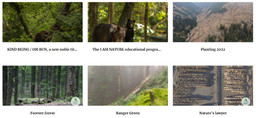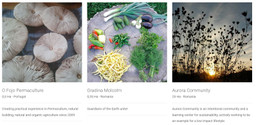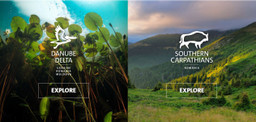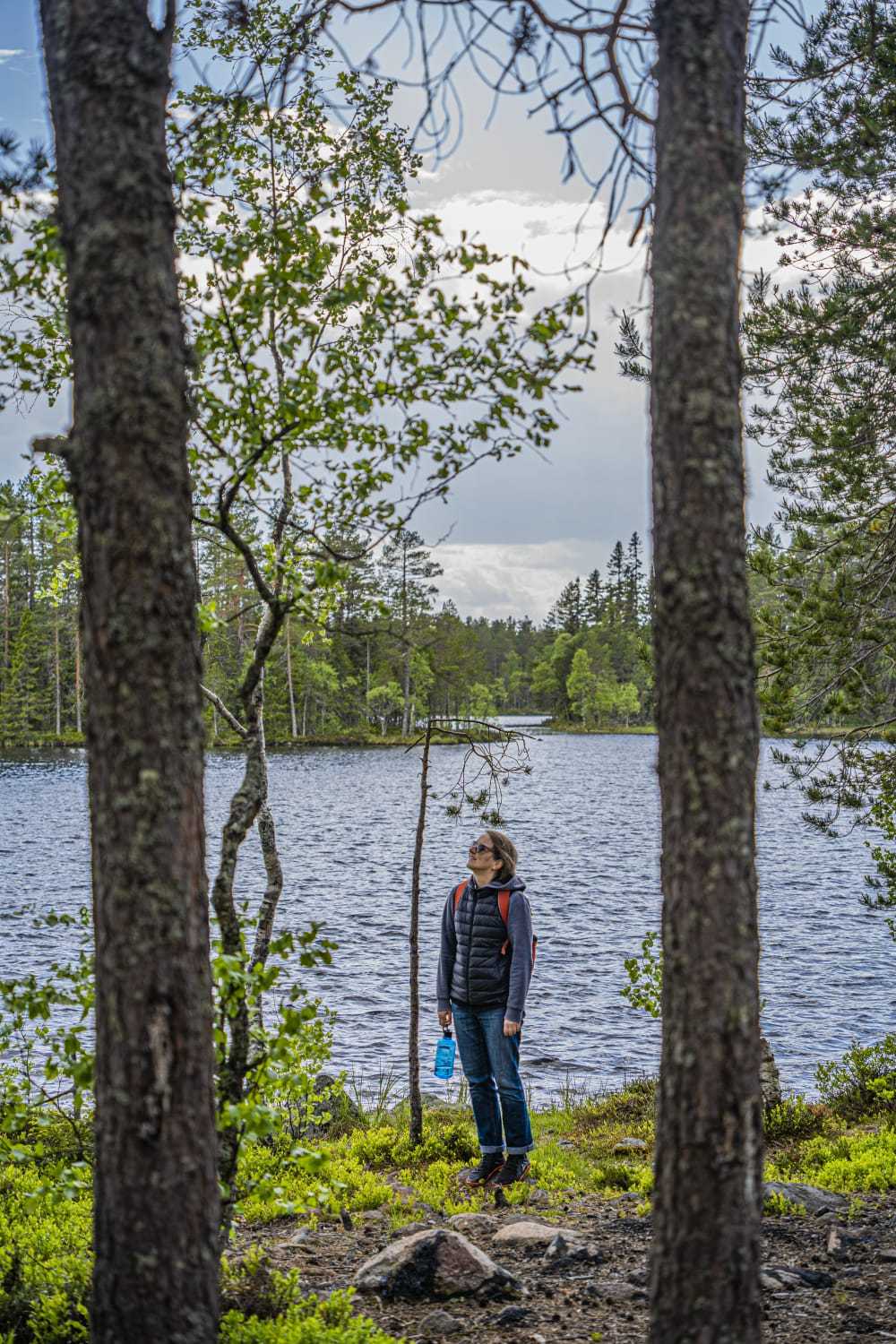
Here on earth.fm, as well as cherishing and sharing sounds from the natural world, we also support projects which keep those environments going.
If you’re new to our platform of soundscapes, you should know that it is not-for-profit, but that we do encourage our listeners to donate to independent charities working to preserve and heal our deeply wounded Mother Earth.
The recordings on earth.fm come from all corners of the world, and each recordist shares their preferred charity – usually one which runs projects in their home country, or simply which supports projects dear to them.
Here, we’re introducing some of the charities in Romania which we currently support.
In terms of nature, Romania is a country in Eastern Europe known for its extensive unlogged old-growth forests. These last remaining virgin woods are “the heartland of biodiversity” in Europe – yet they have been threatened for decades by alarming rates of both legal and illegal logging. Given the deepening climate and biodiversity crises, the need for charities to hold authorities accountable, or lead hands-on projects, is greater than ever.
Local organizations
Agent Green
This non-governmental, non-profit organization for environmental protection was established in 2009, and is best known for investigating and strategically exposing environmental crimes, as well as promoting solutions for the conservation of biodiversity for the benefit of future generations.
Their mission is to safeguard the strict protections for the 13 Romanian national parks, their expansion, and their harmonization with International Union for Conservation of Nature (IUCN) principles. They are also establishing new national parks, as well as creating a coherent network of protected natural areas and ecological corridors to ensure the conservation of all native flora and fauna species.

In addition, they aim to make at least 7% of Romania strictly protected until 2040. In 2009, when Agent Green was founded, less than 1% of the country was strictly protected. By 2019, this percentage had approached 2%, thanks to the environmental movement in Romania.
At the heart of the organization are the following principles:
People need nature. Nature does not need people
Man must work with nature, not against it
All species have equal rights. Life should not be taken but protected
Nonviolence
Independence.
Their independence refers to the organization (which is not affiliated with any political parties or corporations) being “funded exclusively by individual donations, sponsorships and funding from foundations that in no way aim to direct the organization’s work.”
You can read more about Agent Green’s mission here, and their many projects and goals, which go beyond protecting forests and include the reduction of consumption of food ingredients of animal origin, increasing the use of renewable sources of energy, and banning the production and consumption of plastic.
Terra Livre
Terra Livre is associated with Transition Towns in Romania and is a full member of ECOLISE, the European Network for Community-Led Initiatives on Climate Change and Sustainability.
In their own words, they “don’t want to save the forest”’ but “create a world where the forest doesn’t need to be saved.” Their strategy in achieving this is to combine the conservation and regeneration of natural landscapes in collaboration with local communities where individuals act as guardians and are dedicated to overcoming challenges together. Terra Livre believes that local organizations are those best positioned to develop sustainable responses to challenges such as conflicts and the consequences of changing weather patterns.

By supporting the commons, they empower these communities to engage with nature conservation and regenerative practices across generations. Once acquired or donated to Terra Livre, land can be neither bought or sold again, nor intentionally exploited. The land can instead only be given in custody to projects or communities, formed as legal entities, who act as the guardians by conserving, regenerating, protecting, and managing the land.
This model of ensuring that forests remain communal hands has been shown to cut carbon emissions, while also helping communities and offering long-term benefits. It is an ‘everybody wins’ situation tested in indigenous settings and explored here by journalist Jonathan Watts.
“Living for 50 years, a tree will generate 26.300€ [sic] worth of oxygen, provide 52.200€ worth of air pollution control, control soil erosion and increase soil fertility to the tune of 26.300€, recycle 31.600€ worth of water and provide a home for animals worth 26.300€. This figure does not include the value of fruits, lumber or beauty derived from trees.”
Find out more about Terra Livre’s projects in Romania and other European countries, how to get involved, donate, or become an Earth Guardian.
International organizations
Rewilding Europe
Rewilding Europe is an independent, not-for-profit foundation registered in the Netherlands since 2011, which has established itself as a pan-European initiative, operating at the frontline of rewilding on a continental scale.
The foundation works with numerous partners, on European, national, and local levels. As of mid 2022, they are working on nine large rewilding projects in landscapes across Europe, with staff and board members, ambassadors, and volunteers from 18 European countries.
Their goal is to see rewilding practiced at scale across Europe, and thus to demonstrate the benefits of ‘wilder nature’ through the rewilding of diverse European landscapes, as well as to inspiring and enabling others to engage in rewilding by providing tools and practical expertise. The application of rewilding principles, models, and tools is delivering measurable, demonstrable, and sustained benefits for nature and people.
In Romania, one project focuses on the Danube Delta – “Europe’s unrivaled wetland”: 580,000 “surprisingly wild and relatively undestroyed” hectares, where they collaborate with partners from Ukraine and Moldova. The delta is home to massive amounts of waterbirds of all kinds, most notably two species of pelicans, as well as herons, storks, cormorants, and terns. It is also a favorite wintering ground for masses of migrating waterbirds and a staging area for passage migrants.

In addition, it is the location of some of Europe’s very few remaining grazed mosaic forest landscapes: the beautiful woodlands of Letea and Caraorman. In addition to a healthy population of golden jackal, beavers are slowly returning to the area, while white-tailed eagles are making a remarkable comeback.
The massive productivity of the many water habitats here has led to the delta harboring the largest number of fish species anywhere in Europe. Flagship species are four types of sturgeon, which once used to populate the entire length of the Danube river, all the way into Germany.
Rewilding Europe’s other project in Romania focuses on the southern end of the Carpathians, where they plan to create one of Europe’s largest wilderness landscapes south of the Arctic Circle. The Carpathians host a rich variety of wildlife (wolf, Eurasian lynx, brown bear, wildcats, red deer, roe deer, wild boar, chamois, and more). However, their numbers are still unnaturally low, partly due to intensive hunting in the past. The ongoing large-scale abandonment of farmland is an opportunity for wildlife to return, and has created an urgent need for new economic opportunities in these traditional rural areas.
As well as joining or supporting the foundation, it is possible to donate to the specific initiative dearest to you (the return of the lynx, or the European bison, wild horses, vultures, and many more), or you can even partner with them.
The Frankfurt Zoological Society
The Frankfurt Zoological Society is an international conservation organization providing support to national parks and wilderness areas. Though based in Frankfurt, the society’s staff coordinates projects in 18 countries, and partners with local communities, conservation authorities, national park administrations, and other NGOs.
In Romania, they are working to create a wilderness reserve in the Făgăraș Mountains (part of the Southern Carpathians). Their implementing partner organization in Romania is Foundation Conservation Carpathia (FCC), which was established in 2009 with the aim of creating Europe’s largest national park, to protect the unique, intact wilderness and rich biodiversity of the Făgăraș Mountains.
These stunningly beautiful mountains surrounded by natural forests harbor significant populations of European brown bears, wolves, and Eurasian lynx. Untamed rivers still shape the valleys, and over 3,700 plant species can be found here, many of them endemic to the region. After a 200-year absence, bison have also been reintroduced to the ecosystem.
Find out more about how to support this project, including donating to this specific project.
Thank you for your interest in conservation, rewilding, protecting biodiversity, and other environmental protection projects!
We’re always interested in hearing about new projects and organizations taking practical steps towards healing our planet. Do share with us!
Earth.fm is a completely free streaming service of 1000+ nature sounds from around the world, offering natural soundscapes and guided meditations for people who wish to listen to nature, relax, and become more connected. Launched in 2022, Earth.fm is a non-profit and a 1% for the Planet Environmental Partner.
Check out our recordings of nature ambience from sound recordists and artists spanning the globe, our thematic playlists of immersive soundscapes and our Wind Is the Original Radio podcast.
You can join the Earth.fm family by signing up for our newsletter of weekly inspiration for your precious ears, or become a member to enjoy the extra Earth.fm features and goodies and support us on our mission.
Subscription fees contribute to growing our library of authentic nature sounds, research into topics like noise pollution and the connection between nature and mental wellbeing, as well as funding grants that support emerging nature sound recordists from underprivileged communities.

